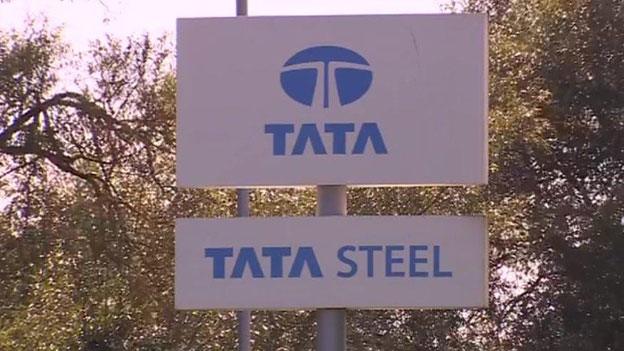'Energy security' could see Liberty Steel plant expand
- Published
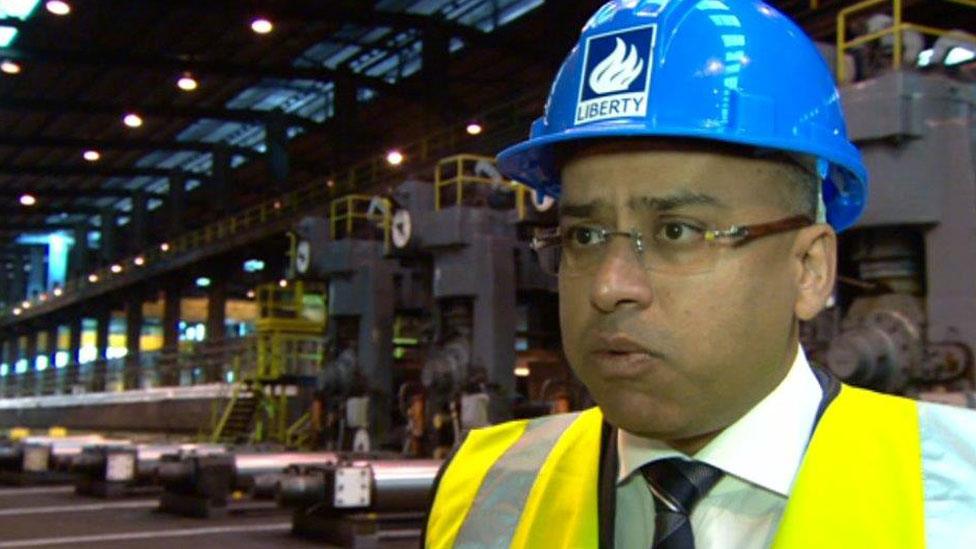
Sanjeev Gupta said the firm was looking for long term ways to reduce energy costs in the steelmaking process
A south Wales steelworks could expand to recycle scrap metal and create 1,000 new jobs if it gets "better security on energy", BBC Wales can reveal.
Liberty Steel reopened the mothballed rolling mill in Newport in October and is now employing 170 people.
The company's executive chairman Sanjeev Gupta said he now believed restarting the site's arc furnace would be "100% viable".
Experts said the plans were interesting but challenging given energy costs.
Liberty recently bought parts of the Caparo steel company - including a plant in Tredegar, Blaenau Gwent, after it went into administration, saving 900 jobs.
The company has also started negotiations to buy two of Tata Steel's mothballed plants in Scotland, where almost 300 jobs are at risk.
It comes as the steel industry has lost thousands of jobs, most recently with Tata announcing 1,050 redundancies in January - most at its Port Talbot site.
On Monday, 5,000 steelworkers, including more than 50 from Wales, marched in Brussels demanding action from the EU to put an end to cheap imports from China.
Sanjeev Gupta said they were looking for "comfort" over energy
Mr Gupta told BBC Wales restarting the arc furnace would see the company take scrap metal and recycle it into products that could be used in growing industries including automotives, aerospace and defence.
The process requires a lot of energy - Celsa in Cardiff follows a similar process and it uses 40% of the city's electricity. But the UK government has introduced financial support to help companies with energy costs.
The Gupta family, who own the nearby Usk power station, has invested in tidal lagoon proposals in an effort to reduce these costs longer-term - a key part of Mr Gupta's plan for the future of steel production.
He also said Liberty was developing an "integrated model" for the industry.
'No burdens'
"We don't want to just make steel, we want to make products that are made out of steel, add value to them and complete the change from end-to-end," he said.
There are also "fundamental mindset issues," Mr Gupta said.
"We don't have any burdens, we don't have any debt. We operate as a small company. We make decisions quickly," he explained.
Cardiff Business School's Prof Peter Wells, an expert on sustainability and the automotive industry, said Liberty's plans were interesting but challenging given the world market.
"The longer term supply and demand position for steel is quite uncertain. It is likely that there will be continuing over-capacity in the sector which will depress global steel prices but it is not certain that supplies of sufficient quality can be guaranteed," he said
Steel production may not be seen as the best use of renewable energy in the UK in future, he added.
- Published16 October 2015
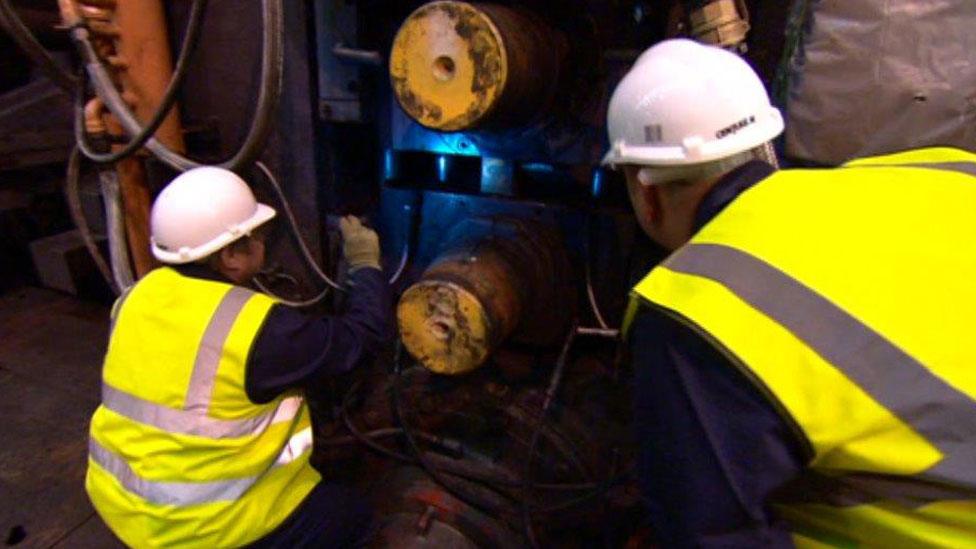
- Published16 October 2015

- Published16 October 2015
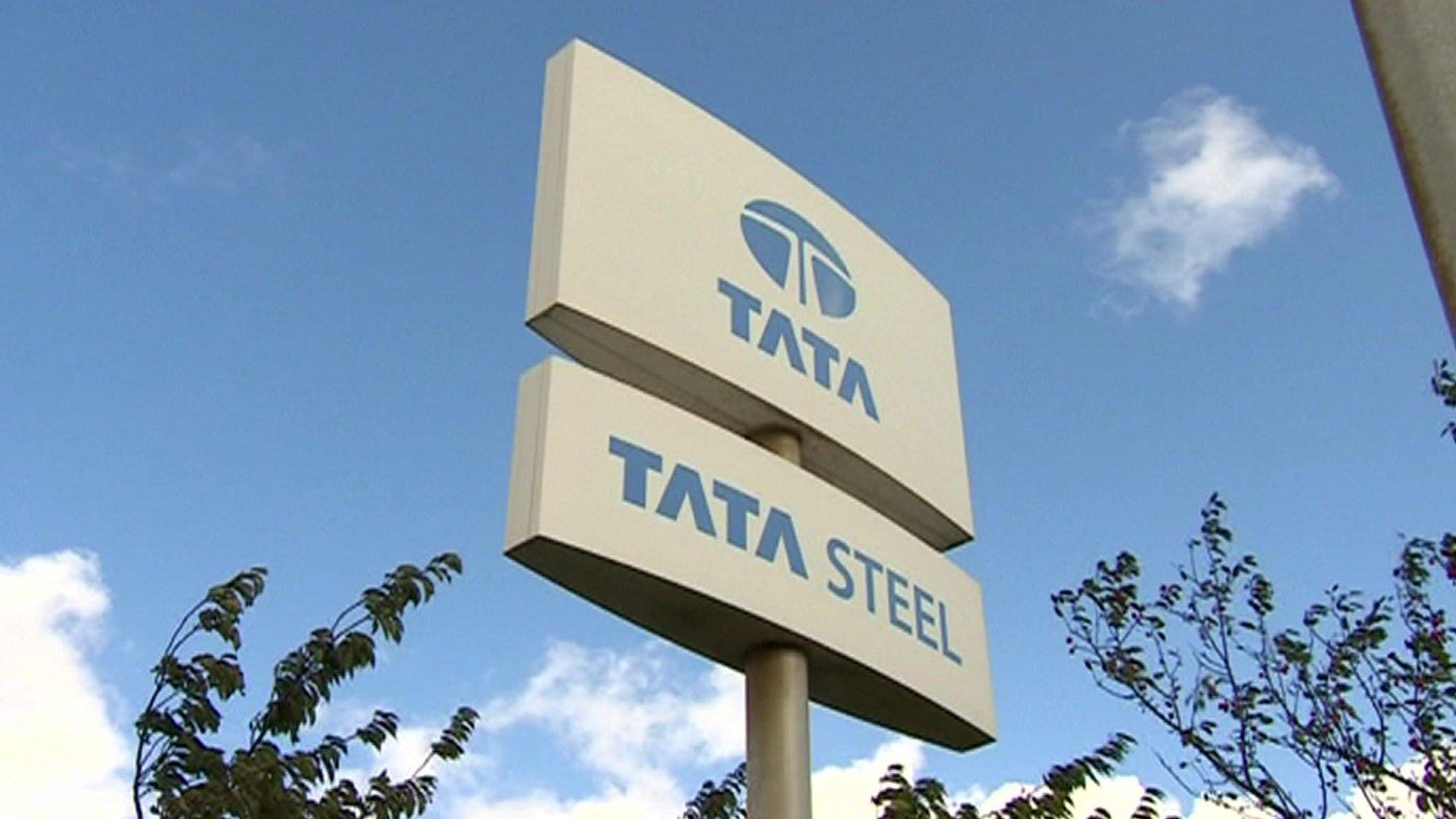
- Published16 October 2015
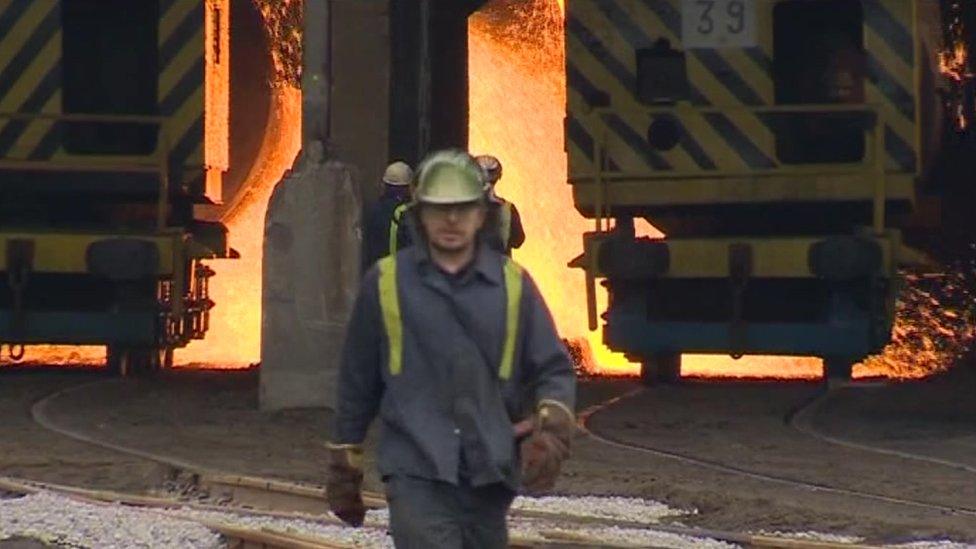
- Published16 October 2015
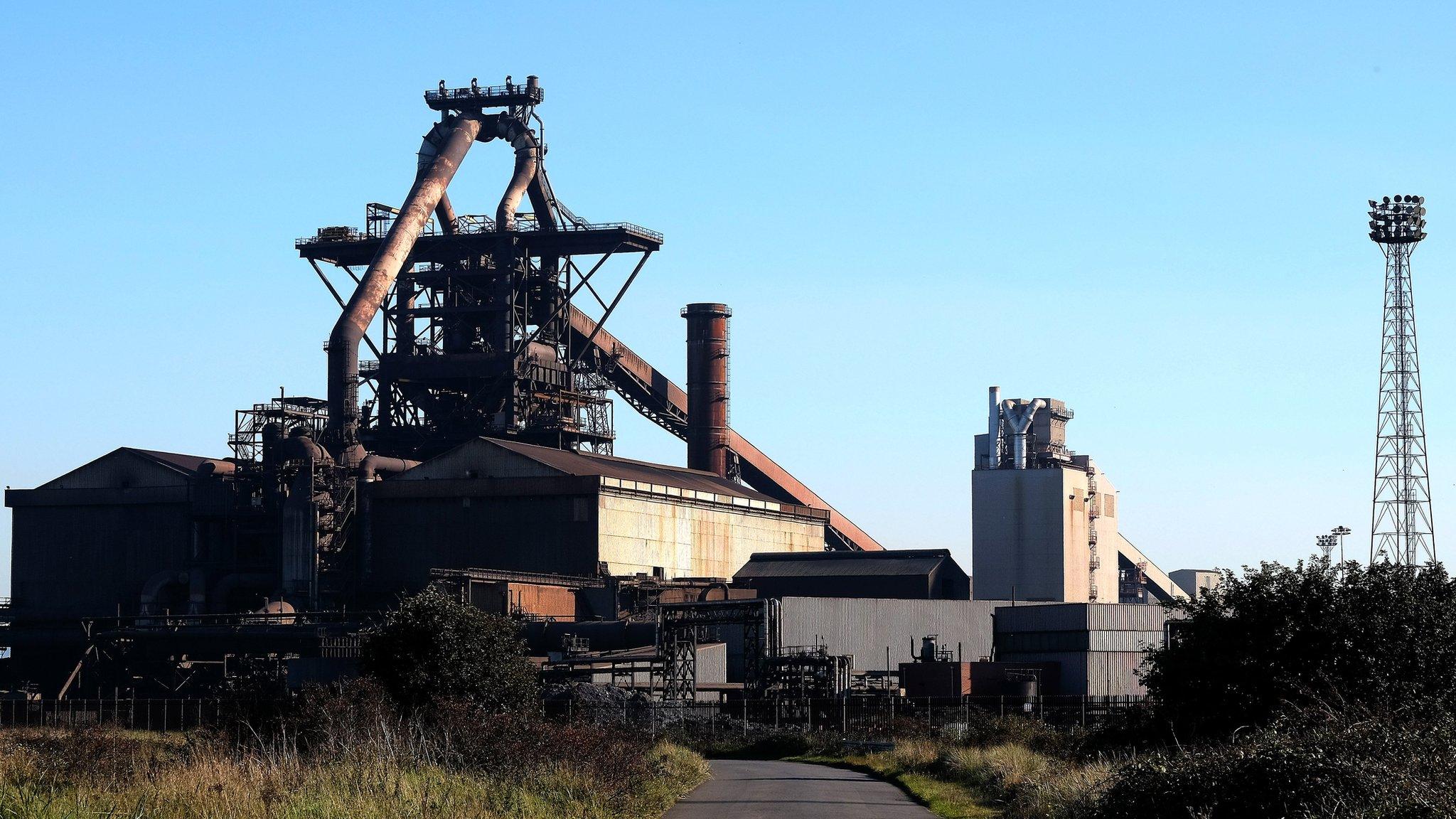
- Published26 August 2015
